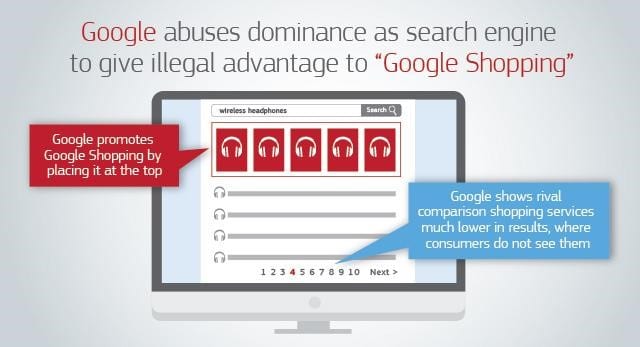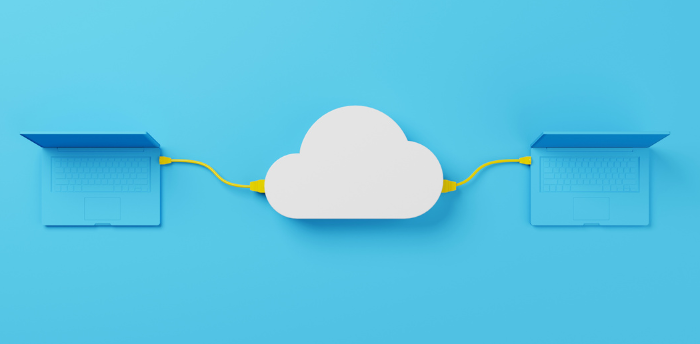Share
Author
Sam Bayer
Share
SAP Indirect Access and Google Shopping: Startling Parallels
[Updated 11/22/17 – We recently launched our ultimate guide on SAP Indirect Access which can be seen here]
[Updated: 10/18/17 Looking for the Duke Memorandum Post? Click Here]
Last June, the EU’s anti-trust division fined Google $2.7B (that’s a B for billion) for antitrust related activities and gave Google 90 days to change their behavior. Last week Google changed their behavior. Google split off their Google Shopping service and are forcing them to compete, on equal footing with all other advertisers, for Google Ads on the Google Shopping service. According to this Bloomberg article, the EU “ordered Google to offer equal treatment to shopping rivals”.
Google basically split off their EU Shopping service as a separate division and they will have to use their own hard earned funds to bid for advertisements against their competition.
That seems fair.
Why should a company that owns the majority…aka potential monopoly…of the search market, be allowed to muscle out their competition by getting ads for free that their competitors have to pay for? The competition, interestingly enough, in spite of their payments, never seem to be able to rise to the top of Google’s search results. Google of course fought the penalties kicking and screaming complaining that the EU misjudged Google’s status in the market. Google claimed that they weren’t the dominant player in the EU market and therefore should be able to do whatever they needed to do to win business.
I love when companies do that. Shareholder reports are full of world domination and anti-trust legal briefs are full of woe is us. Same company different lenses.
Poor Google.
How is that any different from how SAP has been executing their Indirect Access policy? No one disputes the fact that SAP has the right to pursue the distasteful policy of charging their customers for third party access and usage of their own data. That is an SAP business decision that eventually the market will vote on. Remember SAP Fiori? It started out for fee and ended up free. Just sayin’.
However, as I discussed in my “Duke Law Professor Says SAP Indirect Access License Fees Are Illegal” blog post, if SAP weaponizes these fees to “unlevel” the playing field with their competition, that is illegal.
If the EU feels as if Google shouldn’t be able to take unfair advantage of the fact that Google controls the shopping platform, why wouldn’t they think the same of SAP who owns the ERP platform?
I like Google’s solution to the problem. Create a separate Shopping division that has to compete with the market. Google Shopping shouldn’t be allowed to get free Google Ads nor should they be able to influence the cost of their competitors ads. There is a fascinating business strategy question here that Google needs to figure out. What business does Google want to be in? Selling products or selling ads? Google clearly wants to do both. In that case, the EU led Google to decide that you have to manage them separately and to have them individually play under free market rules. Everyone has to compete for ads on the same playing field.
Back to SAP.
What business does SAP want to be in? Do they want to be the central nervous system of every corporation in the world (S/4 Hana) or do they want to run all the feeder “edge” applications like: Digital Commerce, Supplier enablement and the emerging Internet of Things? According to the EU, and the US Department of Justice, if you want to be in both, you probably should manage them separately. Each division should respectively operate under free market rules lest you risk running afoul of the law. If SAP actually followed Google’s lead and spun off hybris and Ariba (back to the future), this problem would probably go away.
Everyone would have to pay for Indirect Access equally.
Let the hybris or Ariba sales person deal with Indirect Access fees the way everyone else does.
There would be no escaping the Indirect Access fees that would show up on his proposals. He would get to experience what it’s like for Indirect Access fees to double or triple the cost of his proposal.
He would have to respond to his client’s reaction to his proposal which is typically, “are you kidding me? You’ve now killed the return on investment of this whole project. I guess we’ll have to stick with faxes. So much for Let’s Do This.”
Let the hybris and Ariba salesperson stand by in horror as their client is assaulted by the threat of vigorous SAP license audits.
On that day, we will have a level playing field.
Level playing fields foster innovation. Monopolies kill it.
If you are enjoying my posts on SAP Indirect Access, drop me a line and let me know. I’d like to stay in touch with you. Together we can make a difference.
Onward!
Sam
Disclaimer – I own stock in both SAP and Google. :-)









